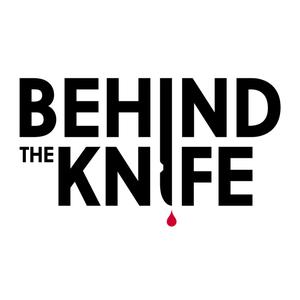A 67 year old woman with a history of hypertension, hyperlipidemia, diabetes, and a 25 pack year smoking history is referred your clinic and is referred for evaluation of her peripheral arterial disease. She reports pain with walking that has limited her doing some daily activities. How can you optimally manage this patient? Does she need an operation? In this episode, we will cover the basics of peripheral arterial disease, discuss the specifics of optimal medical management and dive into the nuances of when (or if) you should offer these patients an operation.
Hosts:
Dr. Bobby Beaulieu is an Assistant Professor of Vascular Surgery at the University of Michigan and the Program Director of the Integrated Vascular Surgery Residency Program as well as the Vascular Surgery Fellowship Program at the University of Michigan.
Dr. Drew Braet is a PGY-5 Integrated Vascular Surgery Resident at the University of Michigan
Learning Objectives
- Review the definition, prevalence, and risk factors for peripheral arterial disease
- Understand the specifics of optimal medical management of patients with peripheral arterial disease
- Discuss the controversy regarding operative management of patients with claudication and review indications for an operation in patients with peripheral arterial disease
- Review the appropriate anti-platelet and anti-coagulation strategies after interventions in patients with peripheral arterial disease
References
1. Woo K, Siracuse JJ, Klingbeil K, Kraiss LW, Osborne NH, Singh N, Tan TW, Arya S, Banerjee S, Bonaca MP, Brothers T, Conte MS, Dawson DL, Erben Y, Lerner BM, Lin JC, Mills JL Sr, Mittleider D, Nair DG, O'Banion LA, Patterson RB, Scheidt MJ, Simons JP; Society for Vascular Surgery Appropriateness Committee. Society for Vascular Surgery appropriate use criteria for management of intermittent claudication. J Vasc Surg. 2022 Jul;76(1):3-22.e1. doi: 10.1016/j.jvs.2022.04.012. Epub 2022 Apr 22. PMID: 35470016.
https://pubmed.ncbi.nlm.nih.gov/35470016/
2. Nordanstig J, Behrendt CA, Baumgartner I, Belch J, Bäck M, Fitridge R, Hinchliffe R, Lejay A, Mills JL, Rother U, Sigvant B, Spanos K, Szeberin Z, van de Water W; ESVS Guidelines Committee; Antoniou GA, Björck M, Gonçalves FB, Coscas R, Dias NV, Van Herzeele I, Lepidi S, Mees BME, Resch TA, Ricco JB, Trimarchi S, Twine CP, Tulamo R, Wanhainen A; Document Reviewers; Boyle JR, Brodmann M, Dardik A, Dick F, Goëffic Y, Holden A, Kakkos SK, Kolh P, McDermott MM. Editor's Choice -- European Society for Vascular Surgery (ESVS) 2024 Clinical Practice Guidelines on the Management of Asymptomatic Lower Limb Peripheral Arterial Disease and Intermittent Claudication. Eur J Vasc Endovasc Surg. 2024 Jan;67(1):9-96. doi: 10.1016/j.ejvs.2023.08.067. Epub 2023 Nov 10. PMID: 37949800.
https://pubmed.ncbi.nlm.nih.gov/37949800/
3. Gornik HL, Aronow HD, Goodney PP, Arya S, Brewster LP, Byrd L, Chandra V, Drachman DE, Eaves JM, Ehrman JK, Evans JN, Getchius TSD, Gutiérrez JA, Hawkins BM, Hess CN, Ho KJ, Jones WS, Kim ESH, Kinlay S, Kirksey L, Kohlman-Trigoboff D, Long CA, Pollak AW, Sabri SS, Sadwin LB, Secemsky EA, Serhal M, Shishehbor MH, Treat-Jacobson D, Wilkins LR. 2024 ACC/AHA/AACVPR/APMA/ABC/SCAI/SVM/SVN/SVS/SIR/VESS Guideline for the Management of Lower Extremity Peripheral Artery Disease: A Report of the American College of Cardiology/American Heart Association Joint Committee on Clinical Practice Guidelines. Circulation. 2024 Jun 11;149(24):e1313-e1410. doi: 10.1161/CIR.0000000000001251. Epub 2024 May 14. PMID: 38743805.
https://pubmed.ncbi.nlm.nih.gov/38743805/
4. Belch JJ, Dormandy J; CASPAR Writing Committee; Biasi GM, Cairols M, Diehm C, Eikelboom B, Golledge J, Jawien A, Lepäntalo M, Norgren L, Hiatt WR, Becquemin JP, Bergqvist D, Clement D, Baumgartner I, Minar E, Stonebridge P, Vermassen F, Matyas L, Leizorovicz A. Results of the randomized, placebo-controlled clopidogrel and acetylsalicylic acid in bypass surgery for peripheral arterial disease (CASPAR) trial. J Vasc Surg. 2010 Oct;52(4):825-33, 833.e1-2. doi: 10.1016/j.jvs.2010.04.027. Epub 2010 Aug 1. Erratum in: J Vasc Surg. 2011 Feb;53(2):564. Biasi, B M [corrected to Biasi, G M]. PMID: 20678878.
https://pubmed.ncbi.nlm.nih.gov/20678878/
5. Eikelboom JW, Connolly SJ, Bosch J, Dagenais GR, Hart RG, Shestakovska O, Diaz R, Alings M, Lonn EM, Anand SS, Widimsky P, Hori M, Avezum A, Piegas LS, Branch KRH, Probstfield J, Bhatt DL, Zhu J, Liang Y, Maggioni AP, Lopez-Jaramillo P, O'Donnell M, Kakkar AK, Fox KAA, Parkhomenko AN, Ertl G, Störk S, Keltai M, Ryden L, Pogosova N, Dans AL, Lanas F, Commerford PJ, Torp-Pedersen C, Guzik TJ, Verhamme PB, Vinereanu D, Kim JH, Tonkin AM, Lewis BS, Felix C, Yusoff K, Steg PG, Metsarinne KP, Cook Bruns N, Misselwitz F, Chen E, Leong D, Yusuf S; COMPASS Investigators. Rivaroxaban with or without Aspirin in Stable Cardiovascular Disease. N Engl J Med. 2017 Oct 5;377(14):1319-1330. doi: 10.1056/NEJMoa1709118. Epub 2017 Aug 27. PMID: 28844192.
https://pubmed.ncbi.nlm.nih.gov/28844192/
6. Bonaca MP, Bauersachs RM, Anand SS, Debus ES, Nehler MR, Patel MR, Fanelli F, Capell WH, Diao L, Jaeger N, Hess CN, Pap AF, Kittelson JM, Gudz I, Mátyás L, Krievins DK, Diaz R, Brodmann M, Muehlhofer E, Haskell LP, Berkowitz SD, Hiatt WR. Rivaroxaban in Peripheral Artery Disease after Revascularization. N Engl J Med. 2020 May 21;382(21):1994-2004. doi: 10.1056/NEJMoa2000052. Epub 2020 Mar 28. PMID: 32222135.
https://pubmed.ncbi.nlm.nih.gov/32222135/
Please visit
https://behindtheknife.org to access other high-yield surgical education podcasts, videos and more.
If you liked this episode, check out our recent episodes here:
https://app.behindtheknife.org/listen
